When Chinese leader Xi Jinping came to power in 2012, he unveiled a grand vision for the country’s “great rejuvenation” — a “dream” of making China strong and prosperous.
Ten years later, Xi Jinping has changed China. He cemented the country as a force on the world stage, with a vast economic footprint, a modern military and growing technological prowess.
But China has also become a place of increasing strictness on its citizens, with rapid suppression of dissent, pervasive surveillance and growing social control, made more apparent under Xi Jinping’s costly and isolating zero-coronavirus policy.
As the Chinese Communist Party undergoes a five-year leadership reshuffle, CNN looks back at a decade of dramatic changes in China, setting the stage for a new chapter in China as Xi Jinping, its most powerful leader in decades People – Stepping into an expected third term that breaks the rules.
that power party
Xi Jinping has overseen a massive anti-corruption campaign within the Communist Party to consolidate his grip on power. Critics have called it a political purge, but the push appears to have won public support to crack down on a culture of excess and corruption between “tigers” — senior officials — and “flies” — lower-level cadres.
million
Officials have conducted investigations since Xi Jinping came to power in late 2012 and the 18th National Congress of the Communist Party of China.
Or they are senior officials.
Source: CPC Central Commission for Discipline Inspection (2022)
Credits (from top right): Ng Han Guan/AP, Kevin Frayer/Getty Images, Noel Celis/AFP/Getty Images, Ng Han Guan/AP, Nicolas Asfouri/AFP/Getty Images.
Credits (clockwise from top left): Ng Han Guan/AP, Kevin Frayer/Getty Images, Nicolas Asfouri/AFP/Getty Images, Noel Celis/AFP/Getty Images, Ng Han Guan/AP.
Xi Jinping also built a cult of personality around himself as the “core” of the party, reinforcing the party’s role in all aspects of life.
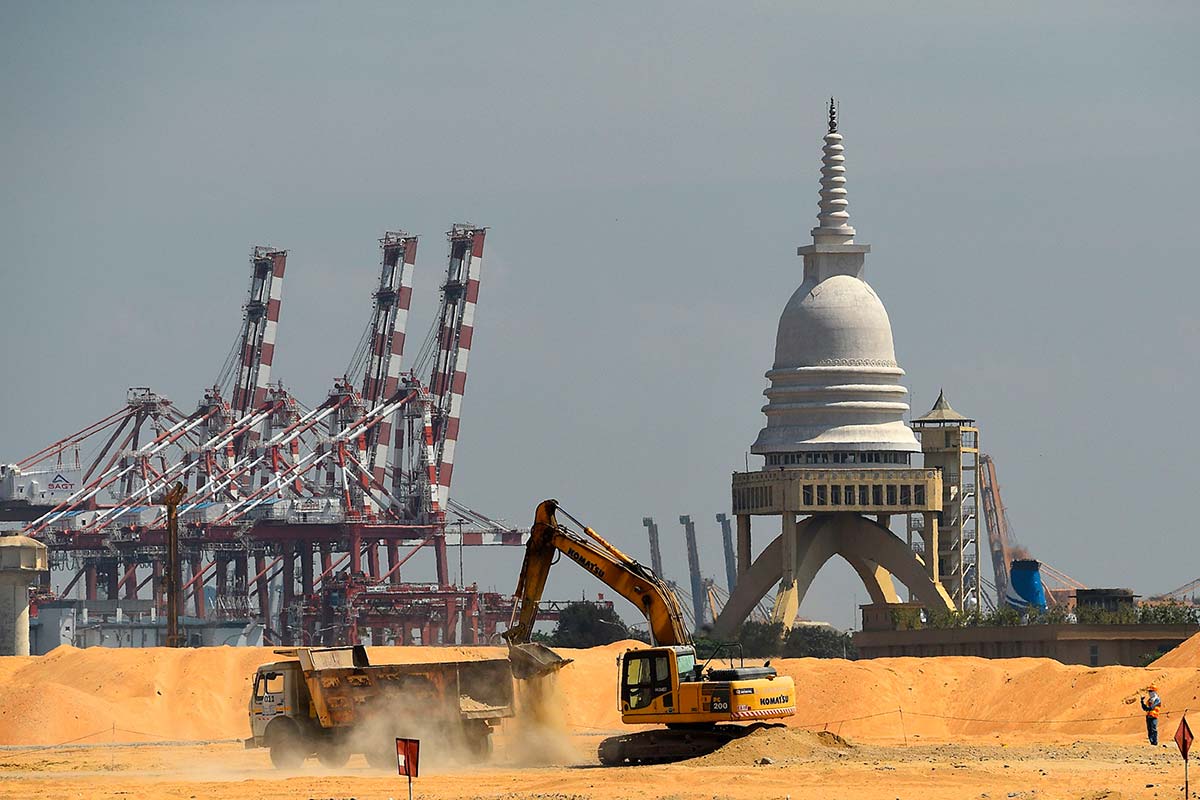
The Belt and Road Initiative
Under Xi’s flagship project, Chinese entities have spent an average of $85 billion a year, estimated by U.S. research lab AidData, to finance infrastructure from Southeast Asia to Latin America — despite criticism of risky lending.
Photo credit: Ishara S. Kodikara/AFP/Getty Images
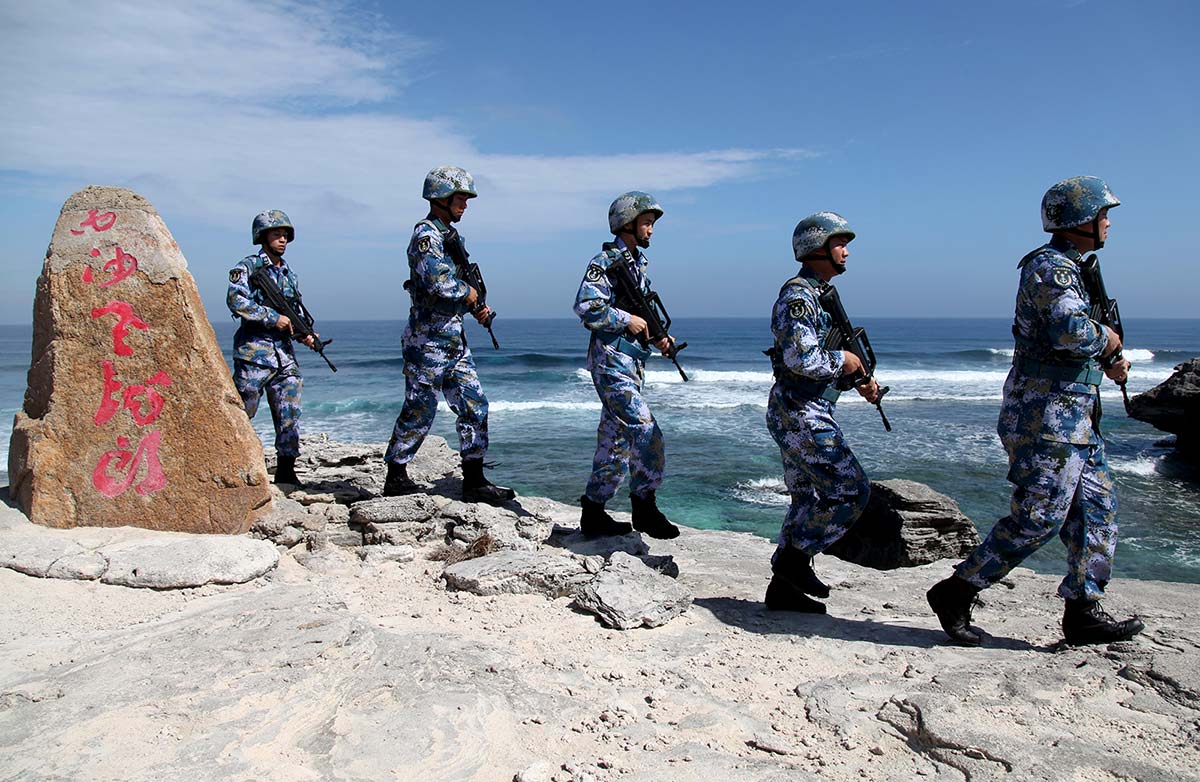
territorial claims
Beijing has grown more assertive in its territorial claims — militarizing islands in the South China Sea, clashing with India over disputed Himalayan borders, escalating tensions with Japan over uninhabited islands, and It has stepped up its rhetoric on its claims to Taiwan.
Credit: Stringer/Reuters

“war Wolf”
Beijing favors a new type of diplomat: combative and decisive, ready to lash out at the United Nations or on social media in defense of Xi’s policies.
Credit: Kyodo News/Associated Press

climate leadership
Xi Jinping has pledged that China, the largest emitter of greenhouse gases, will become carbon neutral by 2060 and stop building coal-fired power plants overseas — although transparency remains limited.
Credit: Kevin Friel/Getty Images

close to russia
Beijing and Moscow have intensified their “strategic partnership” in recent years, moving closer over their respective tensions with the West and personal ties between Xi and Russian President Vladimir Putin.
Credit: Mikhail Svetlov/Getty Images
Factors such as Beijing’s human rights record, assertive foreign policy, handling of Covid-19 and close ties with Moscow have damaged Western perceptions of China — and its relationship with the government there.



Image credits (top to bottom): Kevin Frayer/Getty Images, Li Tang/VCG/Getty Images, Li Bingyu/Xinhua/The Associated Press.
army expansion
Xi Jinping launched an extensive program of reform and modernization of the People’s Liberation Army and transformed the Chinese navy into the world’s largest fleet, opening its first overseas military base in Djibouti in 2017.
“Common Prosperity”
Turning China into a “moderately prosperous society” has been the cornerstone of Xi Jinping’s decade in power. Early on, he set his sights on eliminating “absolute poverty” in the countryside.
In the first few years, as China transitioned from an industrial hub to a services and high-tech economy, private companies by and large flourished and the consumer tech revolution flourished—improving everyday convenience for a growing middle class.

In recent years, Xi Jinping has tightened regulations to curb debt, real estate speculation and financial risks, while also tightening the Communist Party’s grip on the economy. His vision of “shared prosperity” to narrow the gap between rich and poor and a broad campaign to control powerful corporations appear to mark the end of an era of freewheeling private enterprise.
Some of those moves, along with a zero-virus policy, have led to higher unemployment and a drag on China’s already slowing growth.
million
Since 2012, rural residents no longer live under China’s “absolute poverty” standard.
trillion
As of June 2022, the number of Internet users in China is up from 564 million in 2012.
Since the end of 2012, China’s high-speed rail network has added kilometers (about 20,000 miles).
$ trillion
It is estimated that at the peak of China’s crackdown on private companies in 2021, Chinese companies lost their market value globally.
Source: China State Council Information Office, China Internet Network Information Center, Xinhua News Agency, Goldman Sachs
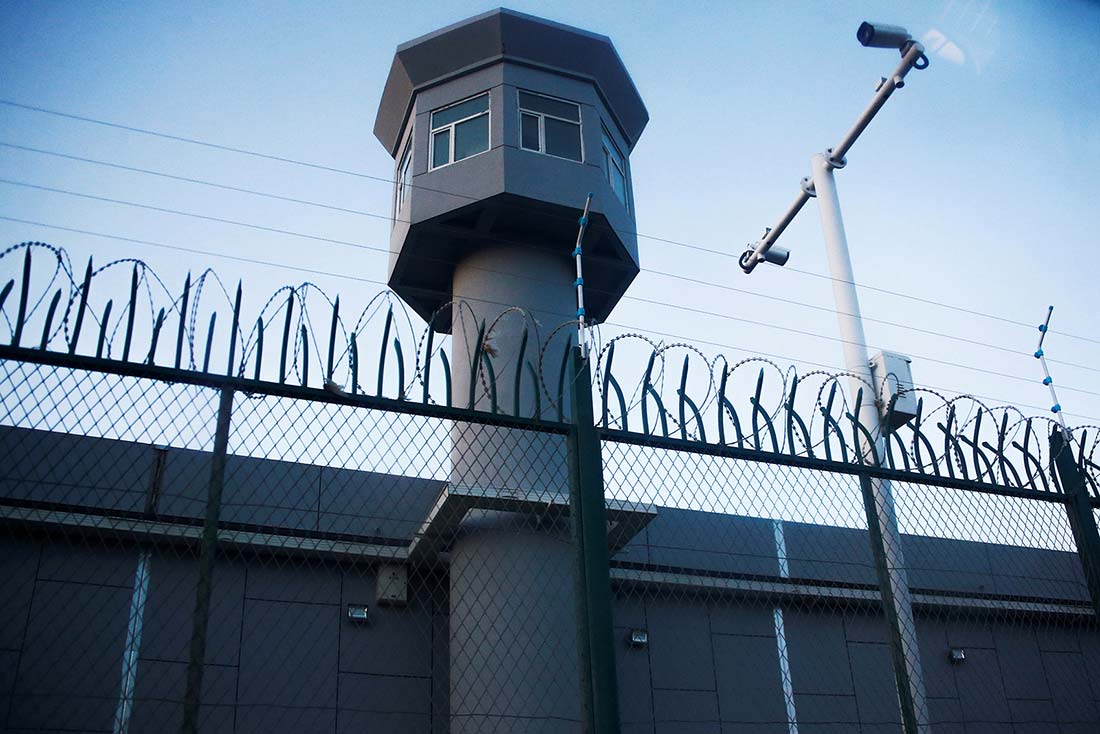
According to human rights groups, more than 1 million Uighurs and other ethnic minorities are estimated to be held in detention facilities, where torture and sexual abuse have been reported. China said it dismantled so-called “education and training” centers, but researchers said some detainees were transferred to prisons.
Credit: Thomas Peter/Reuters
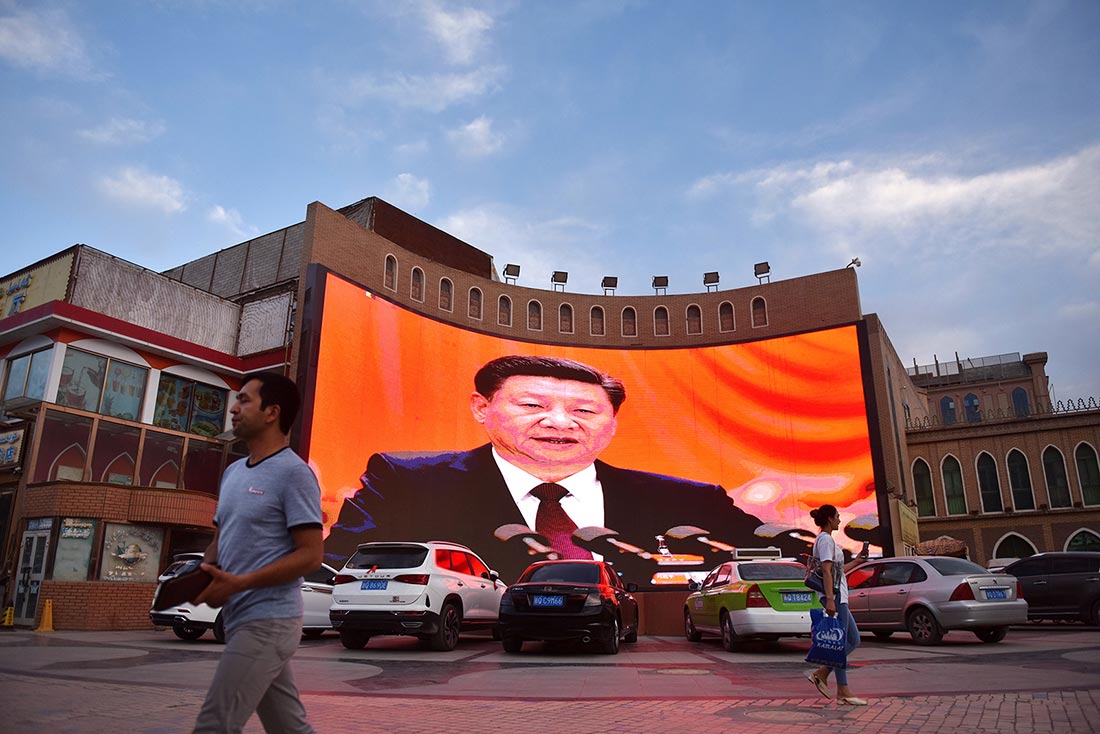
The UN report cited a far-reaching system of video surveillance, police checkpoints, biometric data collection and digital surveillance in Xinjiang that is believed to allow local authorities to track and target Muslim minorities.
Credit: Greg Baker/AFP/Getty Images
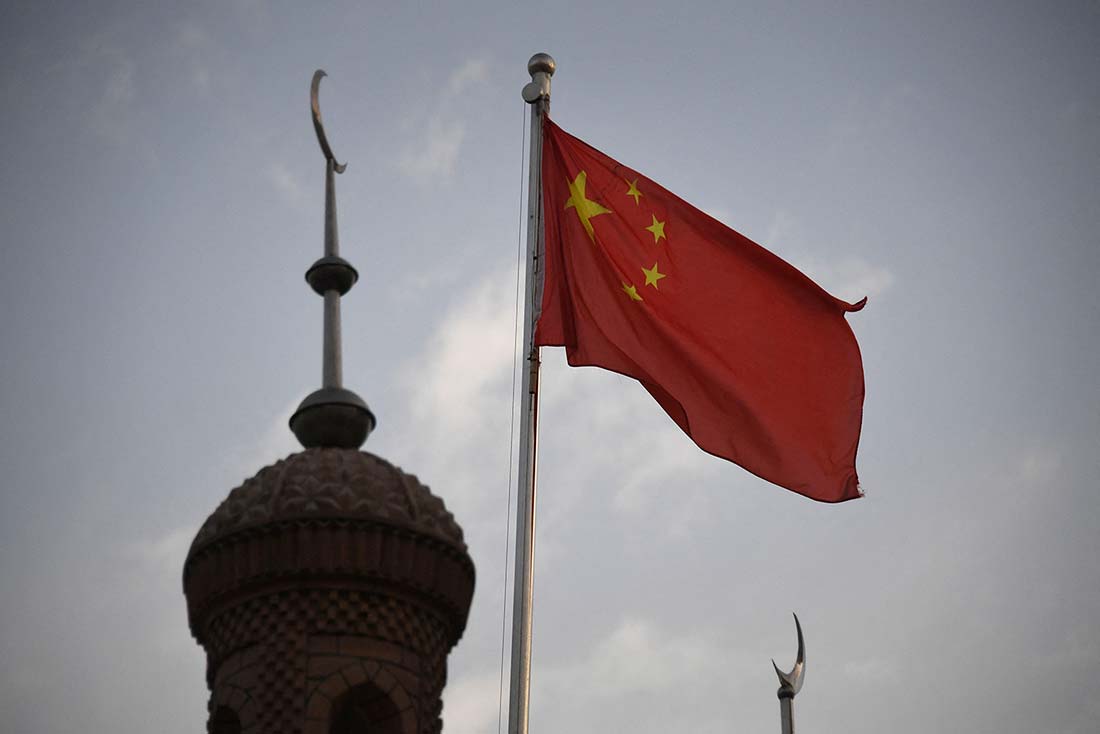
Rights groups say authorities suppress the cultural identity of Uighurs and other ethnic groups, including restrictions on religious practice. The researchers also documented damage to places of worship such as mosques and cemeteries.
Credit: Greg Baker/AFP/Getty Images
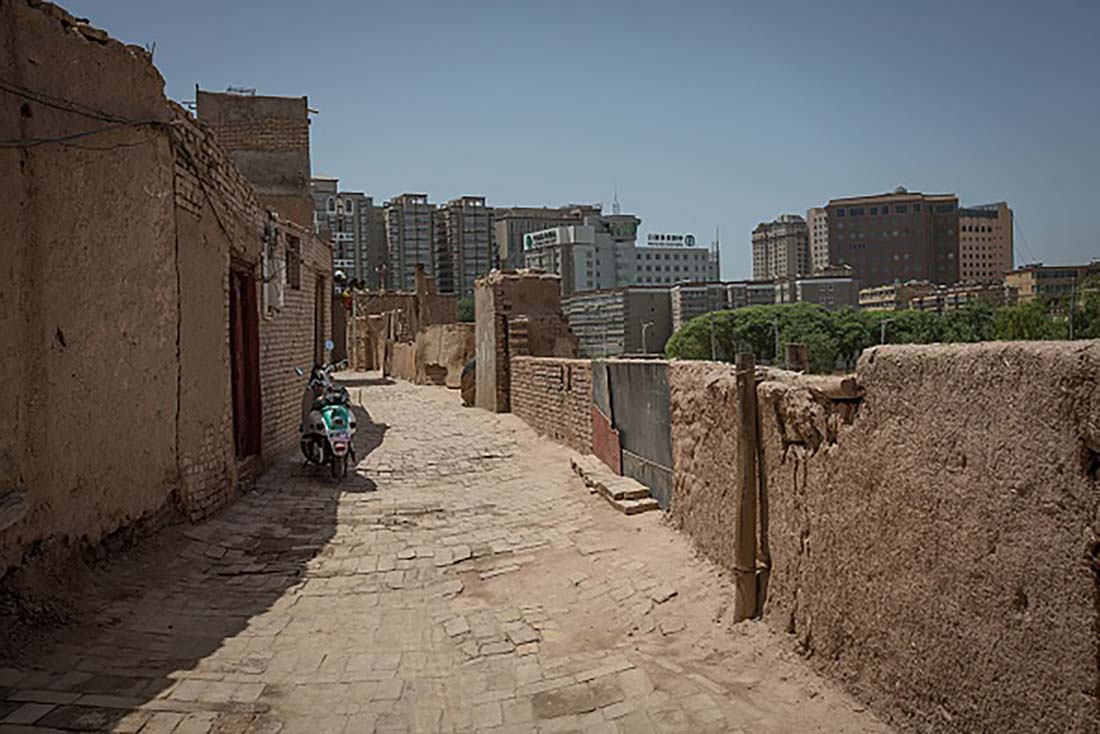
Mass detentions and other controls restricting movement in and out of the area have led to painful, years-long separations of families. There have also been reports of forced sterilization and birth control.
Credit: Guillaume Payne/Sopa Images/LightRocket/Getty Images
Finish one-child policy
The plummeting birth rate — and economic risks from an aging society and a shrinking workforce — prompted China to overhaul decades of restrictive birth control, ending its one-child policy in 2015. The population crisis continues, with China further relaxing rules in 2021, allowing families to have three children.
But for many young people facing unattainable house prices, long workdays and a challenging job market, the government’s push for marriage and children remains unattractive — especially for women, due to entrenched gender norm, they still bear the brunt of the responsibility for raising children.
“We are the last generation.”



Credits (top to bottom): Nicolas/Asfouri/AFP/Getty Images, Isaac Lawrence/AFP/Getty Images, Nicolas/Asfouri/AFP/Getty Images.
crack down Hongkong
Mass pro-democracy protests in Hong Kong in 2019 brought hundreds of thousands of people to the streets, the biggest challenge facing the Hong Kong government since British rule was handed over to Chinese rule in 1997.
Someone was arrested under the National Security Act. As of June, 124 individuals and five companies have been charged.
People were arrested for participating in the 2019 protests, with 2,804 indicted.
Source: Hong Kong Security Bureau
We must ensure that Hong Kong is run by patriots… There is no country or region in the world where the people will allow unpatriotic or even treasonous forces or figures to come to power. “
asphyxia objection
Xi has overseen a massive crackdown on civil society, stifling an already limited sector by targeting or jailing human rights lawyers, academics, journalists, feminists and activists. The Xi era also includes suppressing all forms of dissent and tightening control over information, including through increased surveillance and online censorship.
During the so-called “709” crackdown in 2015, some 300 human rights lawyers and activists were rounded up for questioning, some of whom were later jailed, according to the monitoring group — a sweeping, state-backed campaign for Chinese civil rights. blow.
I will continue to defend Wang Quanzhang’s rights. I will take good care of our children and wait for Wang Quanzhang to come home. “

technology powerhouse and digital surveillance
Xi has called innovation “the soul that drives the nation’s progress” and has increased funding for research while overseeing the push for China to become a leader in high-tech fields ranging from space to quantum computing, artificial intelligence to green energy.
China’s high-tech capabilities also have another focus: tracking the public through the installation of mass video surveillance systems and biometric data collection—strengthening these efforts in the name of fighting Covid-19.




Credits (top to bottom): Stringer/Getty Images, Tian Yuhao/China News Service/Getty Images, Kevin Frayer/Getty Images.
zero coronavirus policy
Since China brought the world’s first Covid-19 outbreak under control in early 2020, Beijing has adopted a zero-tolerance strategy to quell the outbreak, using the power of authoritarian states and their surveillance powers to impose lockdowns, enforce centralized quarantines and regularly enforce Covid-19 test. While the policy initially appeared to have broad public support, dissatisfaction was rising two years later.
From today onwards, the central task of the Communist Party of China is to lead the people of all ethnic groups in the country to make concerted efforts…to comprehensively promote the great rejuvenation of the Chinese nation on the road of China’s modernization. “